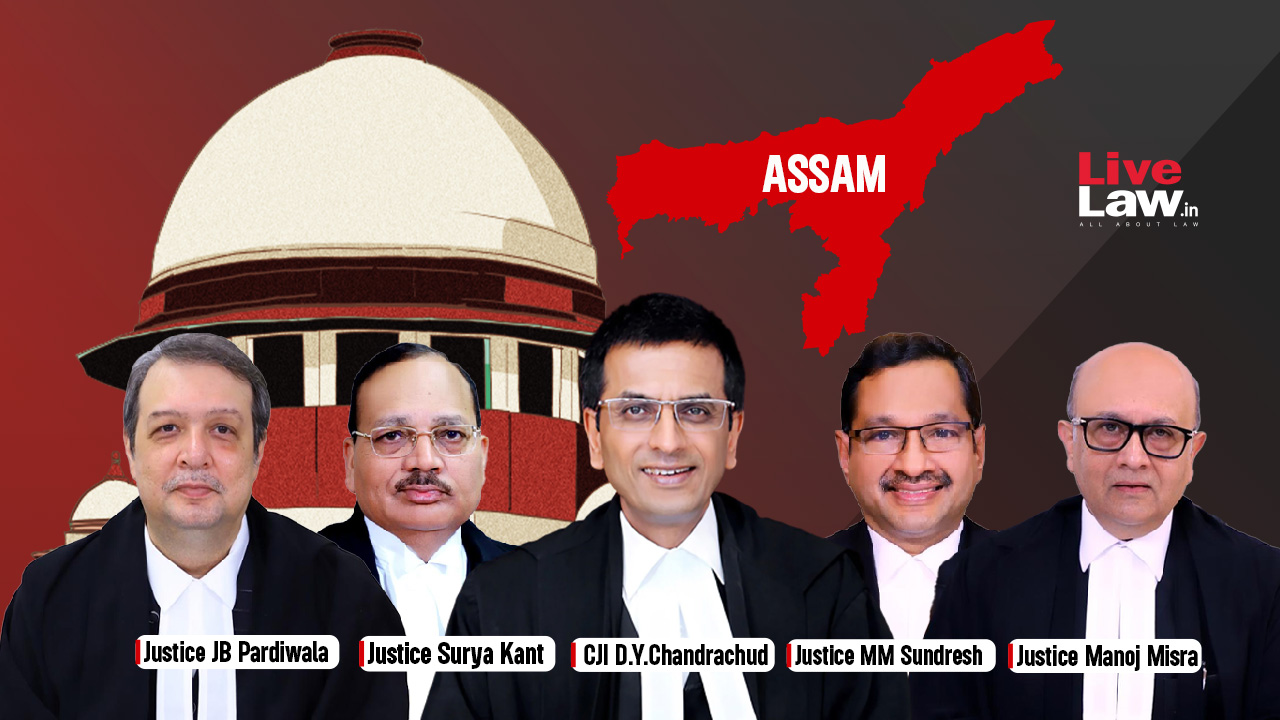 |
|
The Supreme Court of India, in a landmark judgment, has upheld the constitutional validity of Section 6A of the Citizenship Act 1955, which recognized the Assam Accord. The majority judgment, authored by Chief Justice of India D.Y. Chandrachud and Justice Surya Kant, held that Section 6A did not violate Article 14 of the Constitution, which guarantees equality before the law. Justice J.B. Pardiwala, however, dissented, arguing that Section 6A suffers from manifest arbitrariness.
The Assam Accord, signed in 1985, aimed to resolve a long-standing issue of illegal immigration from Bangladesh into Assam. It provided for granting citizenship to those who migrated from East Pakistan (now Bangladesh) to Assam between January 1, 1966, and March 24, 1971, upon completion of ten years from the date of detection as a foreigner. Petitioners in the case had argued that Section 6A was discriminatory because it selectively applied only to Assam, while ignoring the issue of illegal immigration in other states.
The Court, however, rejected this argument, emphasizing the unique circumstances of Assam and the heavy influx of migrants from Bangladesh. Chief Justice Chandrachud noted that while other states share borders with Bangladesh, the magnitude of the influx and its impact on Assam's resources and culture were significantly higher. He also emphasized the importance of the cut-off date of March 24, 1971, which coincided with the Pakistani Army's Operation Searchlight, launched to quell the Bengali nationalist movement in East Pakistan. This operation marked the beginning of the Bangladesh Liberation War, and migrants arriving before this date were considered refugees of the Indian Partition.
Justice Kant further elaborated on the historical and political context of the Assam Accord, highlighting the negotiations and compromises made to address the issue. He underscored the agreement reached between the government of Assam, the government of India, and representatives of the agitation movement against foreigners in Assam. The Accord, he explained, represented a political solution that specifically granted citizenship to immigrants in Assam based on the agreed-upon terms.
Justice Pardiwala, in his dissent, argued that Section 6A lacked a time limit for the detection of foreigners, leading to the possibility of differential application and potential abuse. He pointed out that the provision did not mandate a time limit for the state to identify and remove immigrants from the electoral rolls, leaving them indefinitely eligible to vote. This, he believed, countered the very purpose of Section 6A, which was to speedily and effectively identify and remove illegal immigrants.
The Supreme Court's judgment has significant implications for India's citizenship laws and the delicate balance between upholding constitutional principles and addressing complex issues of immigration and national security. While the majority upheld the Assam Accord and its associated provisions, the dissenting judgment highlights concerns about potential arbitrariness and the need for clear time-bound procedures to address the issue of illegal immigration.
